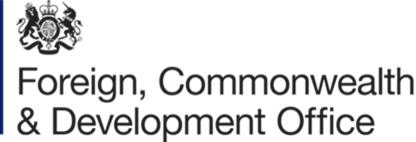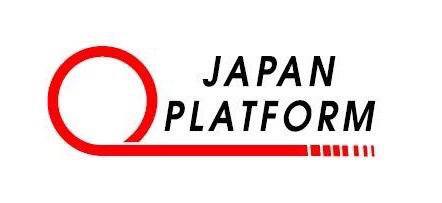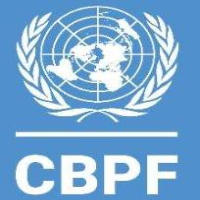South sudan
together for better health
THESO 2030 Strategy
THESO 2030 strategy is contributing to achieving THESO 2070 blueprint and government’s 2040 vision and beyond while meeting global strategies 2030 Sustainable Development Goals 3, 4 and 6 set targets and beyond. To establish a well-performing Health, Education, Nutrition and WASH systems in South Sudan, THESO will continue to work with Government, UN Agencies and other stakeholders to achieves resilience and sustained Health, Education, Nutrition and WASH outcomes through continuous improvement of the four sectors.
People Reached in 2022
THESO South Sudan Programme
The Health Support Organisation (THESO) is a 501 (3) (C) registered South Sudanese based non-profit organisation dedicated to saving lives and relieving suffering through humanitarian and developmental programmes.
Incorporated in 2008, THESO is a private, voluntary, non-political, non-sectarian organisation dedicated to supporting the national efforts in addressing health, education and WASH challenges in South Sudan.
Our mission is to implement evidence-based, culturally Sensitive, innovative projects promoting health, according to perceived public health needs and priorities as understood through quality research. THESO 2030 strategy is contributing to achieving THESO 2070 blueprint and government’s 2040 vision and beyond while meeting global strategies 2030 Sustainable Development Goals 3, 4 and 6 set targets and beyond. To establish a well-performing health, education and WASH system in South Sudan, THESO will continue to work with government, UN Agencies and other stakeholders to achieves resilience and sustained health, education and WASH outcomes through continuous improvement of the three sectors.
Value-Based Healthcare
At THESO we believe that increasing access and the cost of healthcare in South Sudan isn’t sustainable, rather we need to improve the outcomes for the money spent through quality value-based healthcare. The real potential of value-based healthcare will be realised only when the approach is applied successfully at scale – at the national, state, county and community levels.
As part of the movement to make value-based care a reality, THESO has developed five key pillars of a shift towards this more patient-centric approach:
- Data standards
- Standardized measurement
- New payments and incentives
- Change management
- Embrace Innovation & Technology
Education
THESO is committed to support South Sudan government ministry of education to ensure that the basic right to education and culture enshrined in the Constitution is realised through establishing school system with the policy built on the principles of lifelong learning and free education for all based on international quality, efficient & equal opportunities for all citizens. The narrative of Finns rising from rags to riches speaks to South Sudan as a new country – and motivating in building comprehensive blueprints that combat illiteracy and poverty.
To catch-up with the rest of the world countries and remain at the cutting edge, THESO encourage South Sudan government to consult Finland and adopt the best education system in the world both the school system and learning methods so that we develop a new education policy to keep up with the changing world. These are the values that THESO wish to hold on to in the future as we seek to lift South Sudan from the world of illiterates developing country to the world of elites and developed nations.
There is need to build consensus on the main pillars of education policy that shall be characterized by cooperation and continuity – evolution rather than revolution through participation and consultation of a wide range of different stakeholders who shall play a central role in South Sudan education system reform. A tripartite partnership among Government, donor community and national organisations is an integrated part of education policy-making of a new Government’s Development Plan for Education and Research.
Water and Sanitation Hygiene
Embracing better management of urban growth is crucial to guarantee sustainable cities in South Sudan. It is not uncommon for citizens in and around South Sudan’s major cities for residents to spend up to two hours a day transporting expensive water to their homes for drinking and cooking. In addition, a lack of sewage and wastewater infrastructure countrywide is leading to tainted ground and surface water, creating serious health risks from waterborne diseases.
THESO envisioned a team work with national ministry of water resources and irrigation, civil society groups and local governments to mobilise demand for improved drinking water and sanitation services, as well as to build the capacity of private businesses, utilities, and national-level programmes to provide these services in a fair and sustainable fashion.
This will address the problems created by rapidly urbanising, swelling impoverished urban and rural settlement populations that are exacerbating exclusion and inequality in access to water, sanitation and hygiene (WASH) services for the poorest and most marginalised populations.
FSL/Nutrition
Malnutrition is both a cause and consequence of poverty in South Sudan and it negatively affects all aspects of an individual’s health and development and limits societies’ economic and social development. The aim of THESO’s 2020 – 2030 Nutrition Strategy is to guide the organisation’s nutrition policies and programmes in both humanitarian and development contexts with the goal of improving nutrition to save lives, build resilience, increase economic productivity, and advance development.
The strategy supports South Sudan strategy to end extreme poverty and to promote resilient in South Sudan while advancing national prosperity by working closely with partners at all levels. The 10-years strategy is a long-term commitment to make significant progress in nutrition, with regular reviews to make necessary adjustments as the global nutrition environment changes.
THESO seeks new ways of working with government and other partners to accelerate improvements in nutrition by decreasing the prevalence of maternal and child under-nutrition – particularly chronic and acute malnutrition and micronutrient deficiencies in children under five and malnutrition in women of reproductive age (ages 15-49). THESO will prioritize the prevention of malnutrition given the irreversible consequences of chronic under-nutrition early in life.
THESO continues to be at the forefront of the humanitarian community’s effort in South Sudan to reduce and treat acute malnutrition during emergencies, while retaining a strong focus on prevention of under-nutrition in women and children living in food insecure South Sudan. Given expected demographic, environmental, and epidemiological trends over the course of the Strategy (e.g., climate change, conflict, urbanization, non-communicable diseases, technological advancements), the organisation will ensure the Nutrition Strategy has the flexibility to evolve as new evidence becomes available.
This include a robust learning agenda that supports expanding research to address critical knowledge gaps; monitoring and rigorous evaluation to inform program implementation; and timely dissemination and application of lessons learned.
Promoting gender equality and the empowerment of women and girls is a commitment across THESO’s nutrition programmes. Recognising that traditional gender roles, norms, and social structures impact both women and men (and boys and girls), the Strategy will promote gender equality in working with women, men, youth, families, communities and governments to enable sustained change in nutrition behaviours and overall development outcomes.












